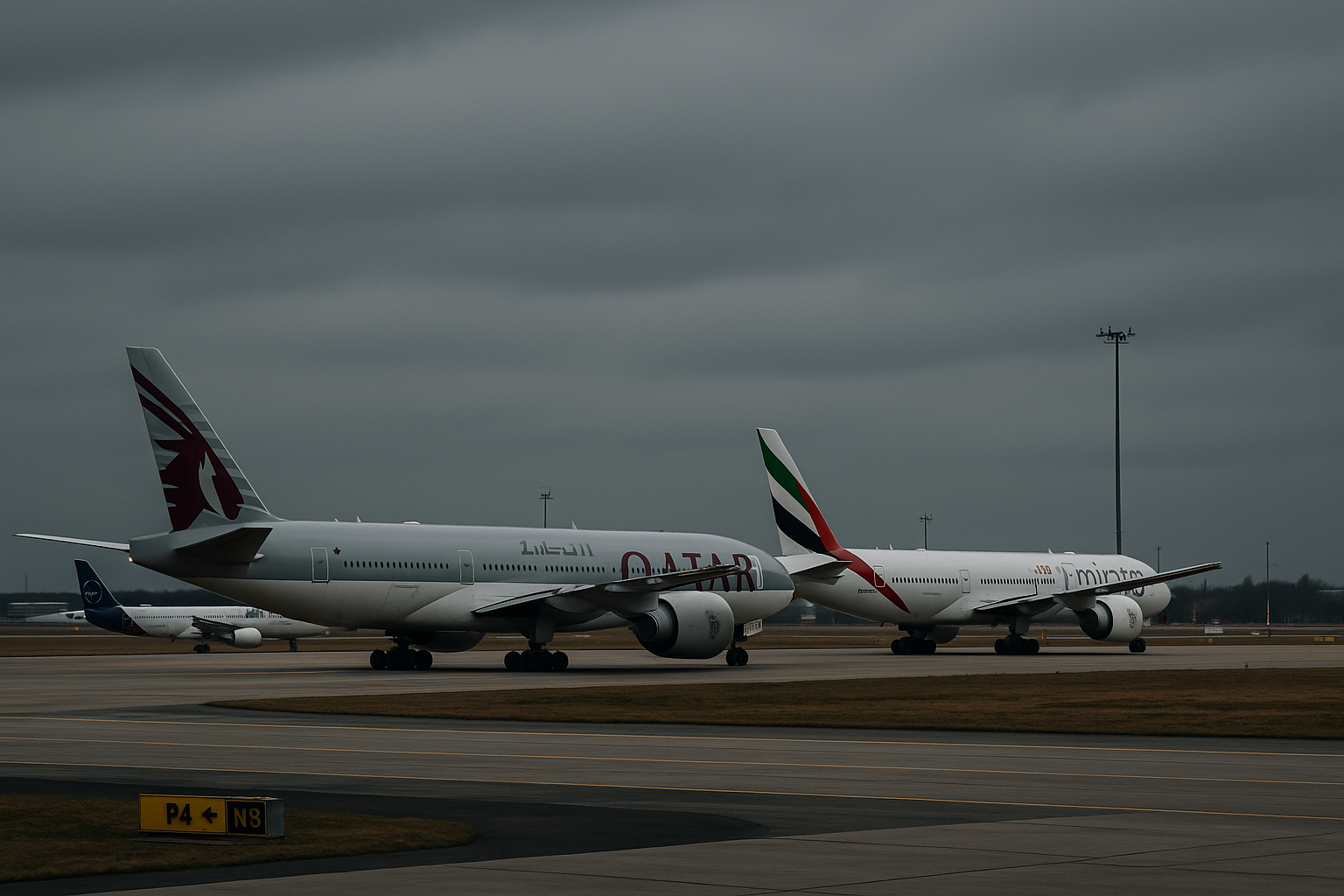June 23, 2025 – Escalation Expands Beyond Missiles
While the world was still reacting to the strikes on Iranian nuclear sites, a new layer of disruption unfolded this Monday. Multiple Gulf nations, including Qatar, Kuwait and Bahrain, closed their airspace following Iran’s missile retaliation against the US base in Al Udeid.
The consequences were immediate. Flights were grounded, routes were rerouted and logistics chains felt the impact. The Middle East, once again, became a chokepoint for global mobility.
Airspace restrictions trigger real-time fallout
Key commercial airlines including Emirates, Qatar Airways and Turkish Airlines had to cancel or divert dozens of flights. Cargo flights carrying essential goods such as medicine and tech components were delayed or redirected to alternate hubs in Turkey, India and Eastern Europe.
Airports in Doha and Manama saw operational slowdowns. Insurance costs for air carriers operating in the region are now expected to spike.
Military aircraft are also operating on high alert, further reducing civilian airspace availability.
Logistics and global trade under stress
This sudden disruption hits right at the core of international supply chains. The Gulf serves as a crucial bridge between Europe and Asia.
Ports and warehouses in the region now face bottlenecks, threatening time-sensitive industries like electronics, health supplies and retail. Importers in Europe are already revising their delivery timelines.
E-commerce platforms with Middle Eastern distribution centers have entered emergency coordination mode. Some orders will be rerouted through alternate maritime and land corridors, extending delivery cycles by days or even weeks.
The United Nations urges calm
In an official statement today, the United Nations expressed deep concern over the escalating tension. It warned that the situation is evolving into what it described as a dangerous spiral that could destabilize multiple regions simultaneously.
Calls for restraint and renewed diplomacy were directed to all parties involved, but so far no formal de-escalation efforts have materialized.
Strategic reflection from June 23
| Sector | Immediate Effect | Strategic Focus |
|---|---|---|
| Aviation and travel | Route disruption and cost volatility | Real-time risk modeling and route negotiation |
| Logistics and cargo | Flow interruptions across Gulf corridors | Supply chain rediversification and local buffers |
| Tech and retail | Delays in component delivery and fulfillment | Forecasting alternatives and inventory hedging |
| Diplomacy and markets | Risk-on investor behavior and capital shifts | Crisis management protocols and information flow |
June 23 will not be remembered as just another news cycle. It marks a convergence of airspace, energy and diplomatic disruption with potential to redefine how global systems interact.
What began in silence at dawn became a signal to the world. In moments like this, decisive strategy becomes more valuable than prediction.







